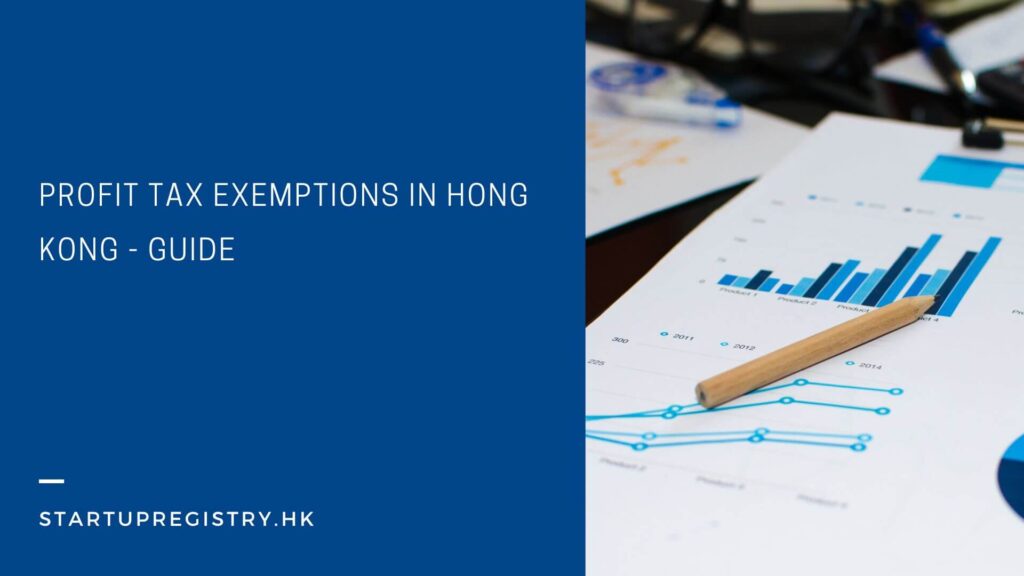Starting a business in Hong Kong is the dream of thousands of entrepreneurs from all around the world. As a global business hub, starting a business in Hong Kong can be extremely easy and profitable. Most importantly, due to its favorable tax policies, Hong Kong is counted among the tax havens for entrepreneurs and investors. A profit tax in Hong Kong is a direct tax imposed on the profits earned through trade, profession, or business in Hong Kong. The profit tax in Hong Kong for corporations is between 8.25% and 16.5%. Meanwhile, for unincorporated businesses such as sole proprietorships and partnerships, it is 15%.
Hong Kong has a territorial taxation system that imposes taxes only on income earned from sources within the territory. The territorial taxation regime provides several benefits to businesses. Businesses can secure a larger portion of the profits for themselves and invest it in the growth of the business. It also reduces administrative tasks, as it can be very tedious to calculate taxes on profits from various territories.
Hong Kong offers multiple tax exemptions to businesses operating there. Profit tax exemptions in Hong Kong allow some types of income and entities to be exempt from paying profit tax. The common purpose of profit tax exemptions in Hong Kong is to promote economic growth, support small businesses, encourage research and development, and attract foreign investment. This article will provide complete information about profit tax exemptions, requirements for qualifying for profit tax exemption, and steps for applying for profit tax exemption.

Understanding Profit Tax Exemptions
Profit tax exemptions in Hong Kong are provided to support businesses and to encourage a social cause or research and development. Tax exemptions are of two types, namely, full exemptions and partial exemptions. A total exemption means that the taxpayer is relieved from paying taxes entirely. Simply put, no tax is imposed on the income or activities of the business. In terms of profit tax, businesses are exempt from paying any income tax. On the other hand, partial tax exemption means that only a portion of the revenue is exempt from taxes, and the rest is taxed under the regular rates. Partial exemptions provide partial relief to businesses as some portion of the business activities and income are subject to tax.
Hong Kong also has a two-tiered tax rate system, which can benefit small and medium-sized enterprises(SMEs). A progressive tax regime was introduced to give tax relief to SMEs. According to the two-tiered tax rate system, the assessable profits of the corporations are taxed at a lower rate for the first HK$2 million. The lower tax rate in the two-tiered tax system in Hong Kong is 8.25%. However, profits above HK$2 million are taxed progressively, meaning the tax rate increases with increasing profit. The earnings above this threshold are taxed at the standard tax rate of 16.5% in Hong Kong.
Qualifying for a Profit Tax Exemption
Profit tax exemptions are offered for many businesses in Hong Kong. To qualify for a profit tax exemption, the company should meet the specific criteria to be classified as SME. Businesses involved in research and development, innovation and technology, export activities, and environmental conservation can benefit from profit tax exemptions. However, companies might need to show the relevant documents and other things to authorities confirming their involvement in the abovementioned fields.
Businesses are required to meet the specific criteria outlined by the Inland Revenue Department (IRD) to be eligible for profit tax exemptions in Hong Kong. The essential requirements to qualify for a profit tax exemption in Hong Kong are as follows:
- Company Incorporation—The first and foremost requirement for businesses to be eligible for a profit tax exemption in Hong Kong is that they must be registered and incorporated in Hong Kong. Businesses are required to register with the Company Registry, which deals with company registration in Hong Kong.
- Compliance with Tax Regulations —To be eligible for profit tax exemptions, businesses must comply with the tax regulations and reporting requirements imposed by the IRD in Hong Kong. They must file their taxes on time, report accurate income and expenses, and maintain accounting records properly.
- Offshore Status—Offshore status is extremely important for a business seeking tax exemptions in Hong Kong. To obtain an offshore status, the company needs to apply to the Inland Revenue Department(IRD). Having an offshore status from IRD shows that the company’s operations and incomeare from outside of Hong Kong.
Profit tax exemptions are strongly related to a company’s offshore activities. Offshore activities refer to business operations and financial transactions performed outside the jurisdiction of one’s economy. Hong Kong offers profit tax exemptions for offshore activities outlined by the IRD, so companies may apply for them and enjoy their advantages. However, partial tax exemptions for businesses with some income originating in Hong Kong are possible.
Applying for a Profit Tax Exemption
As mentioned above, businesses must be registered and incorporated in Hong Kong to apply for profit tax exemptions. Applying for a profit tax exemption in Hong Kong is simple and can be done quickly. Businesses must follow steps to apply for a profit tax exemption in Hong Kong.
1. Prepare Documents
To apply for tax exemptions in Hong Kong, you must present some essential documents to the Inland Revenue Department(IRD). Preparing documents may include financial statements, proof of offshore activities, and vital contracts and agreements.
2. Complete Application Form
The next step is to get an application form from the IRD and fill it accurately. The application form for profit tax exemptions may require you to fill in details of your business, its activities, finances, and other information.
3. Submit Application Form
After you have filled in all the details and completed the application form, you must submit it to the IRD. You must submit the application form by the specified deadline, along with the required documents.
4. Notification of Approval or Rejection
The Inland Revenue Department(IRD) will review your documents and decide whether you are eligible for profit tax exemptions. After they have reviewed your application and documents, you will receive a notification of approval or rejection. You will be granted the profit tax exemption if the application gets approved.
As profit tax exemptions can only be granted for the profit earned by offshore activities, businesses must obtain an offshore status from the IRD. To obtain an offshore status, companies must prepare the documents mentioned in the above section, complete and submit the application form, and get approval from the IRD. To be able to get all the things done correctly, it is essential to seek professional guidance. Consulting a professional such as an accountant for complex situations can save you from making mistakes and reduce the chances of application rejection. To get professional accounting services, you must contact Startupr. The accounting services offered by Startupr can be extremely helpful in getting profit tax exemptions in Hong Kong.
Get personalized expert tax advice from Startupr!
Profit tax exemptions have played a vital role in small and medium-sized enterprises(SMEs). They have benefited businesses in many ways and allowed them to save their profits. The key benefits of profit tax exemptions in Hong Kong are a competitive edge, cost savings, encouragement of entrepreneurship and innovation, business growth, and access to the global market. The steps to apply for a profit tax exemption and the criteria to qualify for a profit tax exemption in Hong Kong are discussed above in detail. Some other tax incentives available for businesses in Hong Kong include a two-tiered tax regime, tax deductions for research and development, tax incentives for corporate treasury centers, and many more.
For personalized tax advice, you should consult with Startupr. You can get a wide range of benefits and services if you consult Startupr for personalized tax advice.


